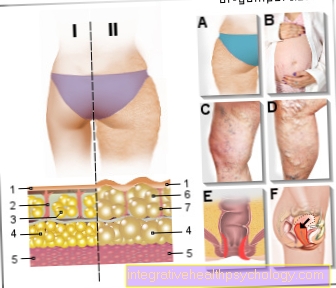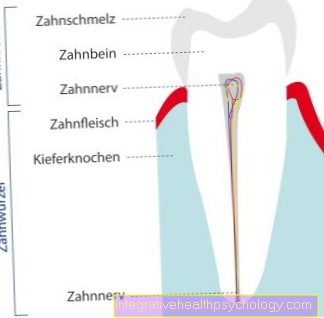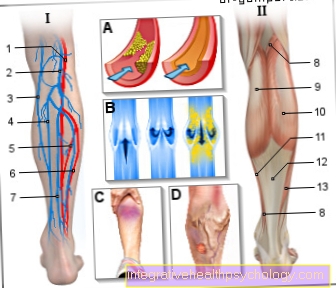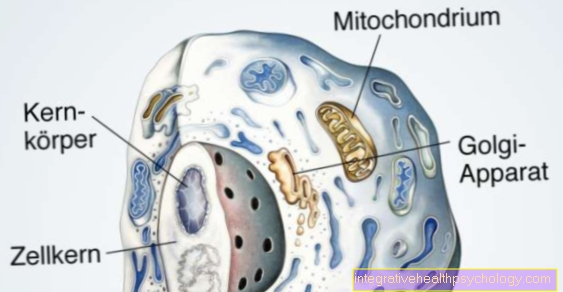brain death
English term
brain death, cerebral death
definition
The term brain death is the irreversible activity of vital brain areas that are no longer present (Cerebrum, Cerebellum, Brain stem) at one by artificial Ventilation understood that the cardiovascular function is still maintained (Scientific Advisory Board of the German Medical Association, 1997). In the scientific and medical sense, brain death means the death of humans.
Brain lobe

Frontal lobe = red (frontal lobe, frontal lobe)
Parietal lobe = blue (parietal lobe, parietal lobe)
Occipital lobe = green (occiptital lobe, occipital lobe)
Temporal lobe = yellow (temporal lobe, temple lobe).
Diagnosis
To determine the irreversibility of brain activity, certain medical examinations as well as apparatus-based procedures and certain observation times are required. The Scientific Advisory Board of the German Medical Association (1997) issues the following guidelines for diagnosing brain death:
- requirements
In order to determine brain death, either primary (severe head injury, etc.) or secondary brain damage (due to lack of oxygen, etc.) must be present. In addition, intoxication and pathological processes must be ruled out. - Symptoms for the failure of the brain function are unconsciousness (coma), light rigidity of the pupil (pupils no longer react to light stimuli), lack of reflexes and a lack of spontaneous breathing.
- Irreversibility of failure symptoms
- The duration of observation of the failure symptoms must be between 12 hours and three days. Additional apparatus-based examinations are necessary to diagnose brain death. Electroencephalography (EEG), with which the activity of the brain is recorded, is such an apparatus. If the electroencephalogram shows neither a basic activity (zero line finding) nor a reaction to visual, auditory or tactile stimuli (evoked potentials, EP) and no blood circulation in the large vessels (arteries and veins) can be determined using Doppler sonography, in connection with the other investigations, these findings confirm that brain death has occurred.
Read more on the topic: Doppler sonography - Special features in children
The observation period of the failure symptoms must be 72 hours for newborns and 24 hours for infants and small children, each with additional diagnostics using EEG, EP, Doppler sonography.
Read more on the topic: Cerebral hemorrhage coma
Determination of brain death
Brain death must be determined by two doctors, one of whom must have several years of experience in intensive care medicine with patients with severe brain damage.
Brain death is recorded independently by the two doctors using a standardized protocol.
Contrary to the assumption that the time of death is the time of death, it actually means the time of completion of the diagnosis and documentation of brain death.
Neither of the two doctors who found brain death is allowed to follow one Organ transplant take part.
Organ transplant
Tissues or organs may only be removed within the framework of Section 3 of the Transplantation Act after brain death has been determined (guidelines of the German Medical Association 1997, see above), provided that the deceased person or relatives have not objected to the removal of organs / tissue.
Criticism of the definition of brain death
Especially after the Erlangen fall Marion P. criticism of the definition of brain death was raised. Marion P. was born on 5th October 1992 Admitted to the Erlangen University Clinic with severe skull / brain injuries. The patient was diagnosed with brain death three days later. Since the patient was pregnant, it was decided to continue intensive medical treatment until the child was born. After five weeks, however, the brain-dead patient developed a fever and subsequently a miscarriage. Because of this case, criticism of the definition of brain death is particularly loud, since an already dead patient could neither develop a fever nor have a miscarriage. I.e. despite a lack of brain activity, various other systems (Spinal cord, Organs) still be active.
Various other scientists are also critical of the definition of brain death.





























